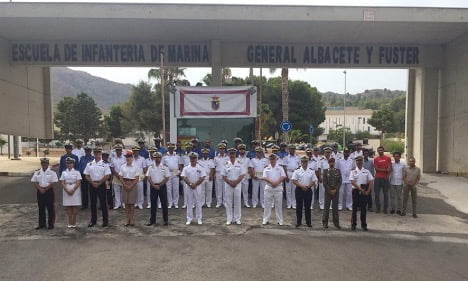The migration crisis of the past few years preceded the COVID-19 crisis, but the concern about how the two might cross one another is a major one within Europe.
One approach being taken by the European Union is to try to bolster the Libyan Coast Guard to hold back illegal migration by sea from Africa to Europe.
In an April 24, 2020 article by Nikolaj Nielsen published by the EUObserver, the effort by the European Union to shore up the Libyan Coast Guard with a signifiant financial effort to support training.
The money is being taken from the European Neighbourhood Instrument, the EU’s financial arm when it comes to countries like Libya. It will also come from the North of Africa section of the EU Emergency Trust Fund for Africa.
The Visegrád Group, composed of the Czech Republic, Hungary, Poland and Slovakia, are also pitching in from their own €35m pot.
It comes on top of the some €90m already doled out to the Libyan coast guard by the European Union.
At the same time, the warring factions in Libya are being supported by countries like Egypt, Russia, Turkey, and the United Arab Emirates.
The Libyan National Army (LNA) led by Khalifa Haftar is supported by Cairo and Abu Dhabi while Ankara backs the internationally-recognised Government of National Accord led by Fayez al-Sarraj.
Turkey’s military support, including scores of Syrian mercenaries, has momentarily tipped the balance of power in Sarraj’s favour.
But the LNA has since managed to secure air defence systems, possibly from the United Arab Emirates via Russia or other eastern European countries.
Eljarh says Russia is now angling its way into supporting Haftar as a more capable partner than Cairo and Abu Dhabi.
“The Russians are increasing their engagement – political engagement, let’s say. They understand that things have starting to get difficult for Khalifa Haftar,” he said.
The European Union has had a difficult time mustering any ceasefire in a country ravaged by competing interests, migration paranoia, and outside influence and actors.


